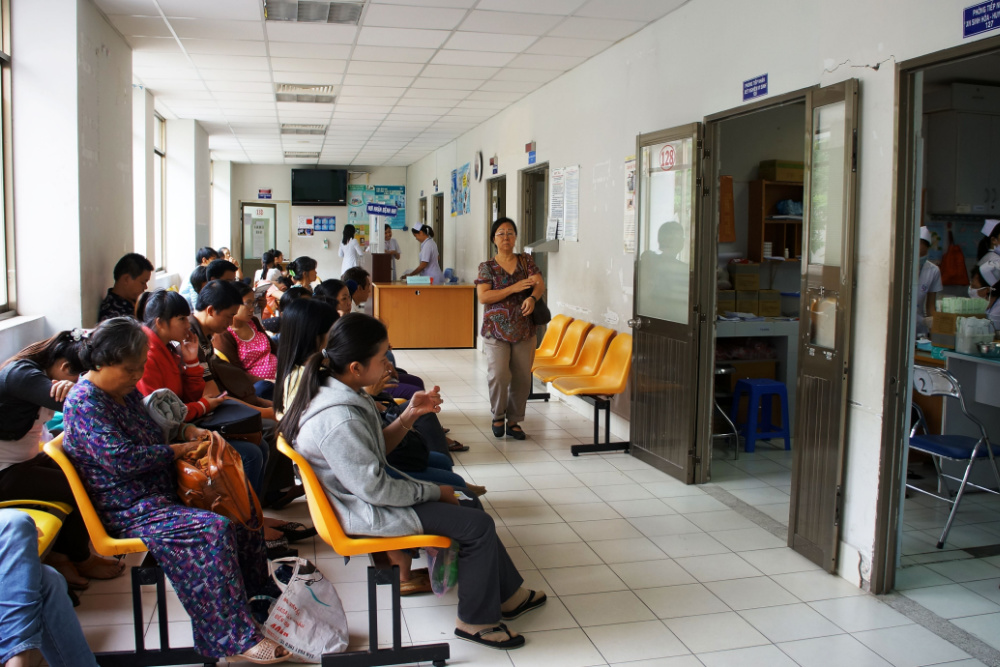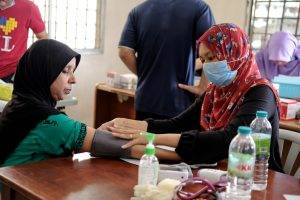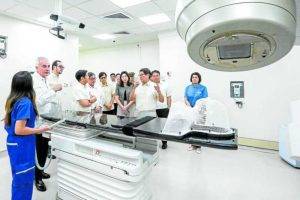Medical Channel Asia presents the weekly Asian medical news bulletin, bringing you essential healthcare news from across the region. This week’s bulletin will cover dengue fever, rotavirus vaccine and more.
Indonesia
The Indonesian government is set to expand the rollout of the rotavirus vaccine nationwide, starting Tuesday, in an effort to prevent diarrheal diseases in infants and reduce related fatalities. Since last year, more than 196,000 babies have been vaccinated in 21 cities across 18 provinces. Research revealed that 45% of infant hospitalizations were due to rotavirus-induced acute watery diarrhea. This has led to 9.8% of infant fatalities under one year old. The rotavirus vaccine will be given to babies aged two to six months old in three doses. This is part of Indonesia’s broader emphasis on preventive treatments. These include the introduction of the human papillomavirus (HPV) vaccine and the pneumococcal conjugate vaccine (PCV) last year. Also, it includes the ongoing efforts to improve childhood immunization rates.
Thailand
Umphang Hospital in Thailand’s Tak province has received 20 million baht in emergency funding from the Public Health Ministry to address a financial crisis resulting from an influx of patients across the Thai-Myanmar border. The political unrest in Myanmar has led many ethnic people to seek refuge and medical help in Thailand, particularly at Umphang Hospital, leading to a spike in its operating costs. The hospital reported a 40 million baht deficit for the first time in three decades. This is largely due to treating immigrant patients. Around 25% of migrant inpatients and half of migrant outpatients reportedly cannot afford their medical bills. Dr. Opas Kankawinpong, the health ministry’s permanent secretary, has also assigned officials to investigate whether local hospitals along the border are facing similar financial challenges and to develop solutions.
Philippines
The Heart Institute at the Amai Pakpak Medical Center (APMC) in Marawi City, Philippines, has started performing operations following its opening on Friday. This Level 3 teaching-training hospital now includes a Heart Institute equipped with a Cardiovascular Catheterization Laboratory, Cardiovascular Operating Room, Surgical Intensive Care Unit, and a recovery room. The institute will act as a regional referral center for the Bangsamoro region and other Mindanao regions. This is in alignment with the Department of Health’s (DOH) goal to regionalize healthcare.
Malaysia
Professor Tess Lambe, who led the Oxford-AstraZeneca Covid-19 vaccine programme, stressed the importance of open communication between academic institutions, regulators, and industry leaders for effective collaboration against pandemics. Speaking at Universiti Malaya, she credited the vaccine’s rapid development to such cooperation and emphasized the need for sustainable investments in science and medical research. Lambe also called for education investment from a young age to prepare for future health threats.
Vietnam
Hanoi has reported 3,180 cases of dengue fever this year, marking a 5.7 times increase compared to the previous year, according to the local newspaper Vietnam News. The city could become the country’s hotspot for the disease, given its high population density and rapid transmission rate. The Hanoi Center for Disease Control (CDC) has predicted a complicated situation as the epidemic has appeared earlier than usual. Outbreaks typically happen between October and December. The Vietnamese Ministry of Health has recorded nearly 57,300 cases of dengue fever across the country in 2021, with 13 fatalities. Hence, they are calling for strengthened prevention and control measures.
Singapore
The National University of Singapore (NUS) has introduced three initiatives to align healthcare education with Singapore’s ‘Healthier SG’ vision, focusing on integrated and preventive care. Starting from August 2023, NUS will implement a new interdisciplinary common curriculum for undergraduates in Dentistry, Medicine, Nursing, and Pharmacy. The new curriculum will reflect the major healthcare system reform needed for aging in place using technology and analytics. About 870 first-year students will take five specially-designed courses together to promote collaboration across healthcare disciplines. Additionally, the NUS Yong Loo Lin School of Medicine has added a Minor in Artificial Intelligence (AI) and Biomedical Informatics to prepare medical students for AI-driven digital medicine. A new Minor in Integrative Health will also be available to students from other faculties. This is to expand understanding of modern healthcare systems.














